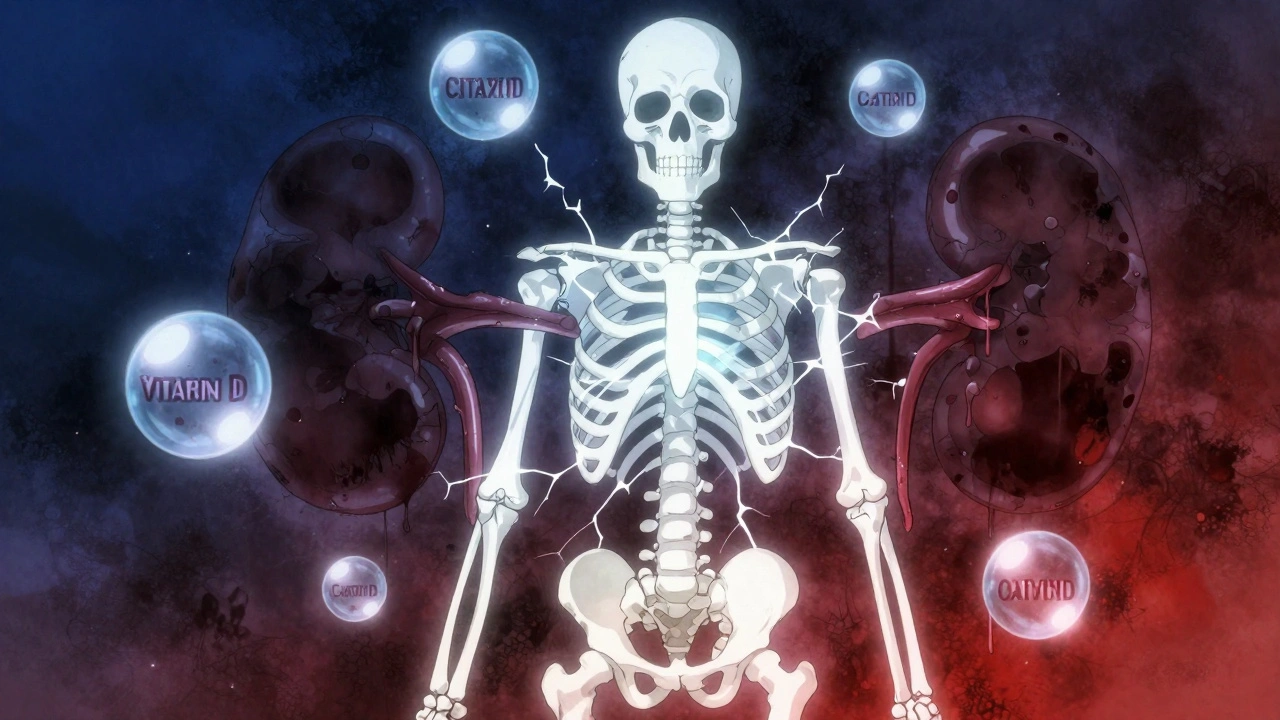Category: Health and Wellness - Page 6
Medications During Menopause: Understanding Hormone-Related Side Effect Changes
Menopause hormone therapy can ease hot flashes and vaginal dryness, but side effects vary by type, timing, and delivery method. Learn the real risks, safer alternatives, and when to stop or switch treatments.
Insurance Changes and Generic Switching: How Formulary Updates Affect Your Prescription Costs in 2025
Formulary updates in 2025 are forcing more patients onto generics and biosimilars to cut costs. Learn how Medicare Part D changes affect your prescriptions, what drugs are being removed, and how to fight back if your medication is switched without your consent.
Mineral Bone Disorder in CKD: Understanding Calcium, PTH, and Vitamin D
CKD-MBD is a complex disorder linking kidney failure to bone weakness and heart disease through imbalances in calcium, PTH, and vitamin D. Early detection and integrated management are critical to prevent fractures and cardiovascular death.
TENS Therapy for Pain Relief: How Transcutaneous Electrical Nerve Stimulation Works
TENS therapy uses mild electrical pulses to block pain signals and trigger natural painkillers. Learn how it works, which conditions it helps, how to use it safely, and what new tech is making it more effective in 2025.
Antitrust Laws and Competition Issues in Generic Pharmaceutical Markets
Antitrust laws in the generic drug market prevent branded companies from blocking cheaper alternatives through pay-for-delay deals, sham petitions, and product hopping. These tactics cost consumers billions and limit access to essential medicines.
AI and Pharmacogenomics: How Personalized Drug Recommendations Are Changing Online Pharmacies
AI and pharmacogenomics are making online pharmacies smarter by matching your genes to the right generic drugs. Learn how this tech prevents dangerous side effects and why you should ask your pharmacy if it uses genetic data.
Provider Case Studies: Real-World Experiences with Generic Medications
Real provider experiences with generic medications reveal that while most generics are safe and effective, caution is needed for narrow therapeutic index drugs. Learn how clinicians navigate substitution, patient concerns, and state laws.
Nebulizers vs. Inhalers: Which One Actually Works Better for Asthma and COPD?
Nebulizers and inhalers both treat asthma and COPD, but inhalers with spacers are faster, cheaper, and just as effective for most people. Learn when to use each and how to get the most from your treatment.
Stimulants and Cardiac Arrhythmias: How to Assess Risk and Find Safer Alternatives
Stimulants for ADHD can increase heart rhythm risks, especially in older adults or those with hidden heart conditions. Learn how to assess your risk, recognize warning signs, and explore safer non-stimulant alternatives.
Cumulative Drug Toxicity: How Side Effects Build Up Over Time
Cumulative drug toxicity is when medications slowly build up in your body over time, causing side effects that appear years later. Learn how it happens, who’s at risk, and what you can do to stay safe.
© 2026. All rights reserved.










